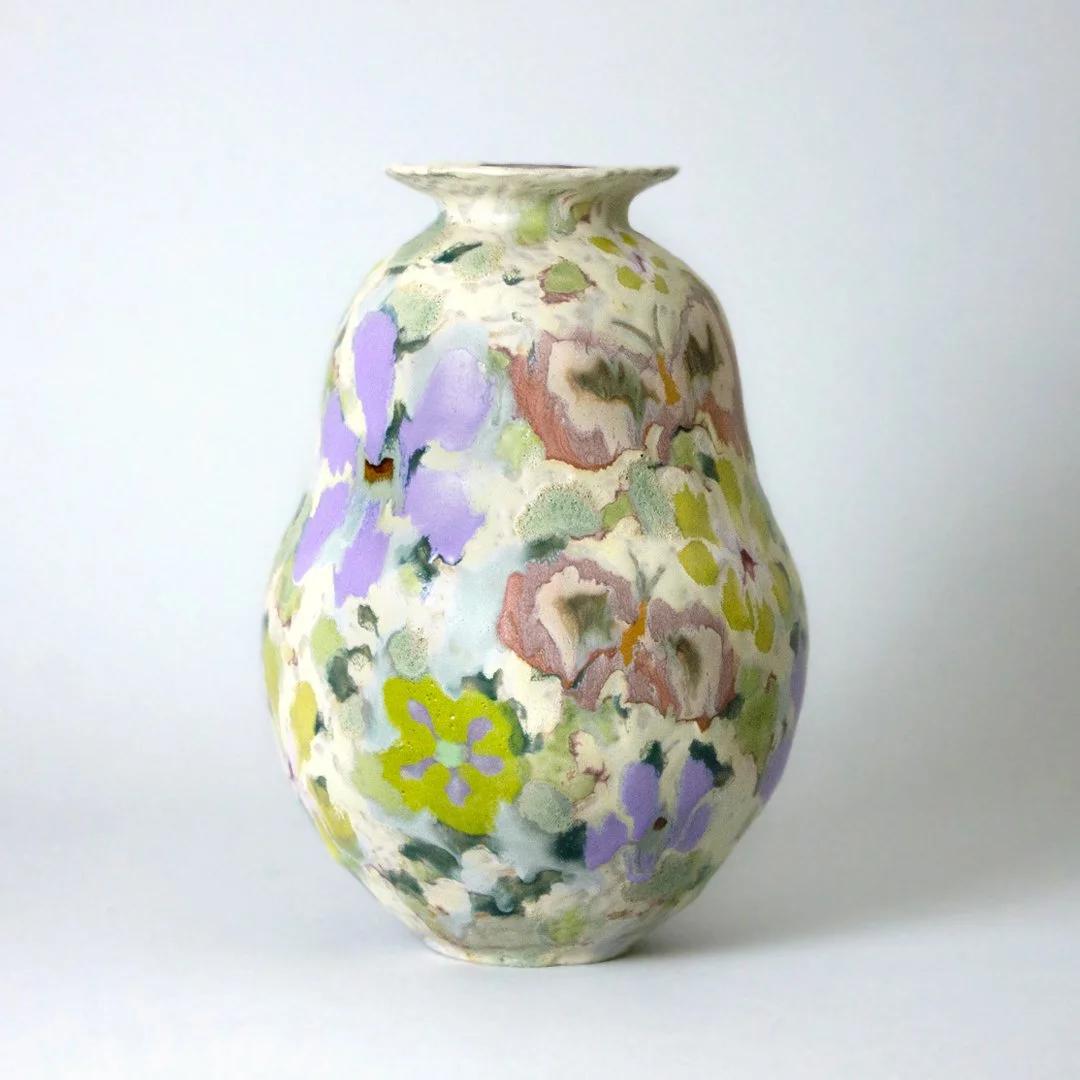Mel Arsenault
Apart from spiritual and eco-feminist fringe spheres, feelings of wonder have long been seen as puerile and trivial by Western culture. Today they are recognized, especially by neuroscience, as essential to the maintenance of human and non-human well-being. With this in mind, Mel Arsenault creates talismanic hybrids where corporealities merge to celebrate the intelligence of matter and its enchanting power. She is completely in awe by the way matter takes shape in order to unfold in space; by the formal rhymes of matter fractal architectures that convey oxygen, water, saps, and blood; by celestial and cellular bodies, all of which are a concoction of atoms in different proportions forming clay, a neuron, a flower, a lactobacillus, a microscope lens, a caterpillar, or a shell.
Focusing primarily on the chromatic and textural development of glass skins, Mel Arsenault conceives her practice as being closely related to the pictorial traditions of painting and drawing. Considering minerals as allies with whom she collaborates, she leaves the final word to the contingency of their chemical alliances, practicing letting go and experiencing, each time she rediscovers her work metamorphosed by the fire an exercise in controlled disappointment (Grayson Perry).
Mel Arsenault holds a Master's degree in Sculpture and Ceramics from Concordia University, where she also earned a Bachelor's degree in Painting and Drawing. She is grateful to live and work in Tiohtiá:ke/Montreal, located on unceded Indigenous lands. Her work has been featured in several group exhibitions and fairs in Canada (Art Toronto, Nuit Chromatic, Nuit Blanche, Projet Casa, Peinture fraîche, Nouvelle Construction, Art Souterrain, Circa, Centre Clark), in England with Arusha Gallery, and in the US at Untitled, Art Miami Beach. Recent solo exhibitions include Shifting Histories at La Guilde (2020), Le jardin des astrocytes at Galerie Nicolas Robert (2021), and Attendre dans le jardin des astrocytes que le matin revienne (2022). Arsenault participated in a residency at the Guldagergaard International Ceramic Research Centre in Denmark and was awarded the Outstanding Work and Meaningful Contribution to Ceramics award from Concordia University. She is deeply thankful for the support of Carolyn and Richard Renaud, as well as the Conseil des arts et des lettres du Québec.

























